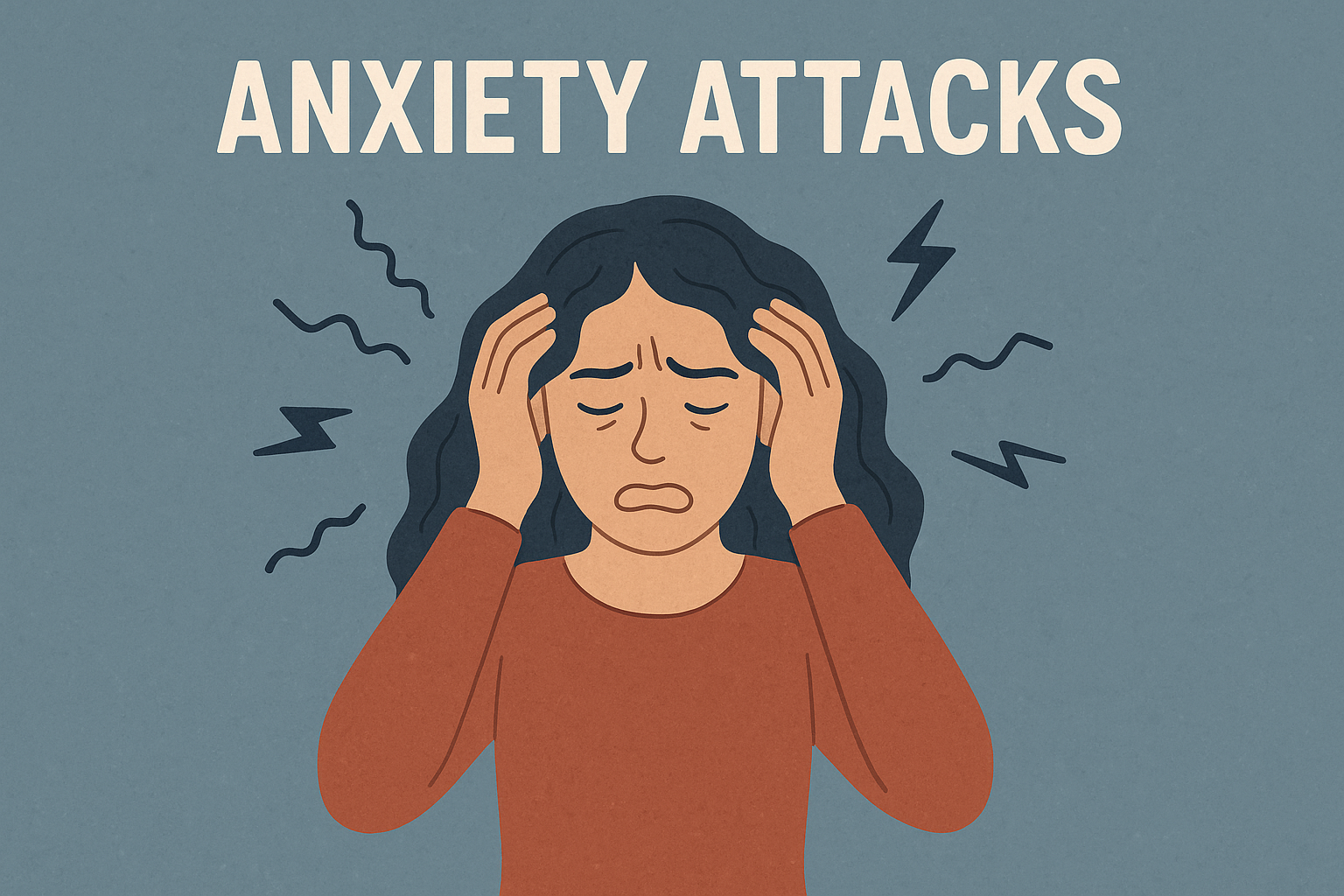
Table of Contents
🧾 What Is an Anxiety Attack?
An anxiety attack is a sudden, overwhelming surge of fear or distress that can feel uncontrollable. Unlike general anxiety, which builds gradually, an anxiety attack often strikes unexpectedly, leaving you breathless, shaky, and terrified. But what exactly triggers it? And how is it different from a panic attack?
An anxiety attack isn’t an official medical diagnosis (unlike panic disorder), but it’s a real and distressing experience.
Anxiety attacks are often triggered by stress, fear, or uncertainty. They can last minutes or hours, depending on the person and situation. Unlike general anxiety, which builds gradually, these episodes tend to come on quickly and feel overwhelming.
Recent research suggests that anxiety attacks are linked to an overactive amygdala (the brain’s fear centre) and imbalances in neurotransmitters like serotonin and GABA (Laura Bragdon., 2024).
Signs & Symptoms of an Anxiety Attack
Physical Symptoms of an Anxiety Attack
Common anxiety attack symptoms (physical) include:
- Rapid heartbeat (palpitations)
- Shortness of breath (feeling like you can’t get enough air)
- Trembling or sweating (adrenaline surge)
- Dizziness or nausea (blood flow shifts away from digestion)
A 2021 study in JAMA Psychiatry found that silent anxiety attacks (where symptoms are internalised) are common in high-functioning individuals, making them harder to detect (Craske et al., 2024).
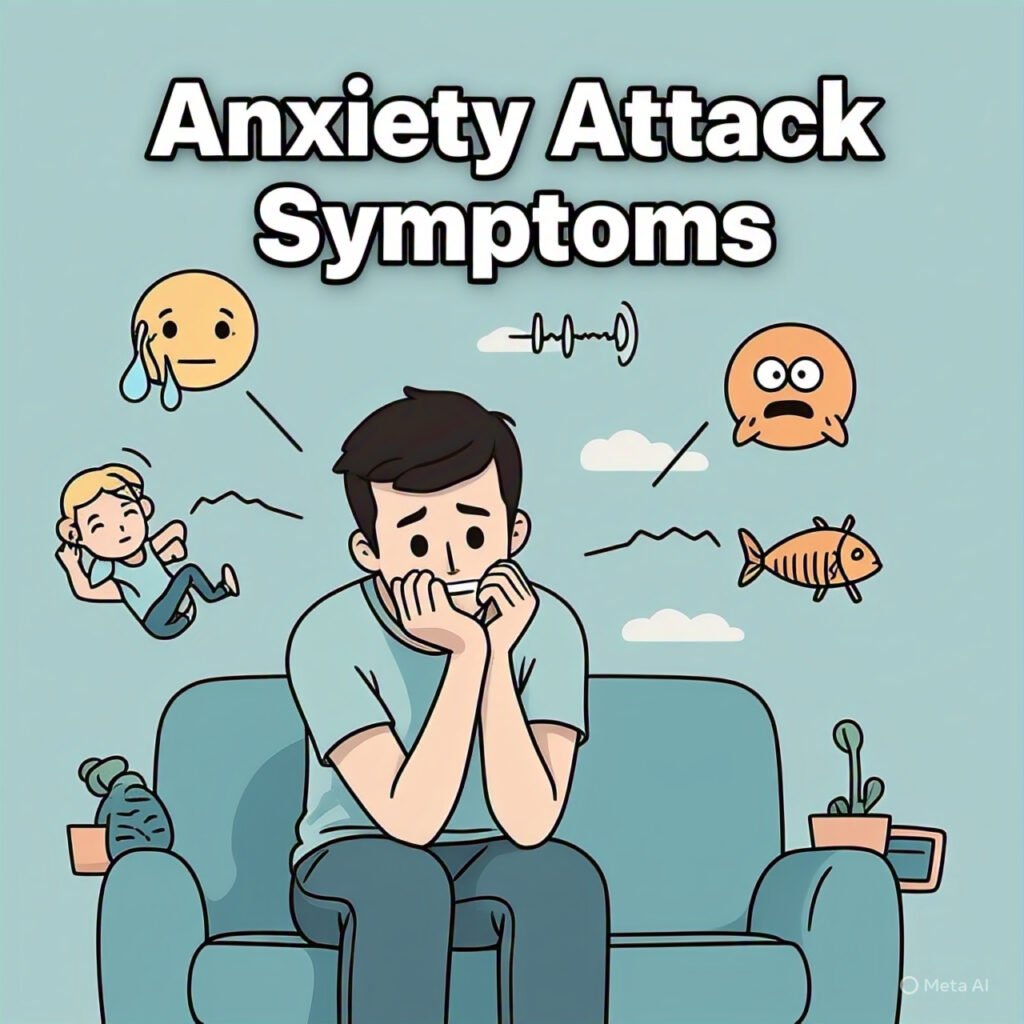
Emotional & Cognitive Symptoms of an Anxiety Attack
- Fear of losing control (“I’m going crazy”)
- Derealisation (feeling detached from reality)
- Catastrophic thinking (“What if I faint? What if I die?”)
If you’ve ever felt these, you’re not alone—research shows cognitive behavioural therapy (CBT) can rewire these thought patterns.
Causes & Triggers of anxiety attacks
Why do anxiety attacks happen? Common triggers include:
- Chronic stress (work, relationships, financial pressure)
- Genetics (family history of anxiety disorders)
- Medical conditions (thyroid issues, heart arrhythmias)
- Substances (caffeine, alcohol withdrawal)
A 2023 meta-analysis in The Frontiers in Psychiatry confirmed that gut health impacts anxiety, with probiotics showing promise in reducing symptoms .
🤯 Panic Attack vs Anxiety Attack:
It’s easy to confuse panic attacks with anxiety attacks — after all, both involve intense fear and physical symptoms.
Difference Between Anxiety and Panic Attacks
While they feel similar, key differences exist:
- Anxiety attacks build gradually, often tied to a stressor (e.g., work pressure, health fears).
- Panic attacks hit suddenly, sometimes without warning, and peak within minutes (American Psychiatric Association, 2022).
- Physical symptoms (like chest pain) are more intense in panic attacks, while anxiety attacks often involve prolonged worry.
❓ What Is the Difference Between Anxiety and Panic Attacks?
| Feature | Anxiety Attack | Panic Attack |
|---|---|---|
| Onset | Gradual | Sudden |
| Duration | Minutes to hours | Peaks within 10 minutes |
| Triggers | Stress, specific situations | Often unprovoked |
| Intensity | Moderate to high | Extremely intense |
| Commonly associated with | Generalised Anxiety Disorder (GAD) | Panic Disorder |
So while both can feel terrifying, panic attacks tend to peak faster and feel more like a “bolt out of the blue,” whereas anxiety attacks build up over time, often linked to ongoing worries.
American Psychiatric Association. Diagnostic and Statistical Manual of Mental Disorders (DSM-5) , 2022.
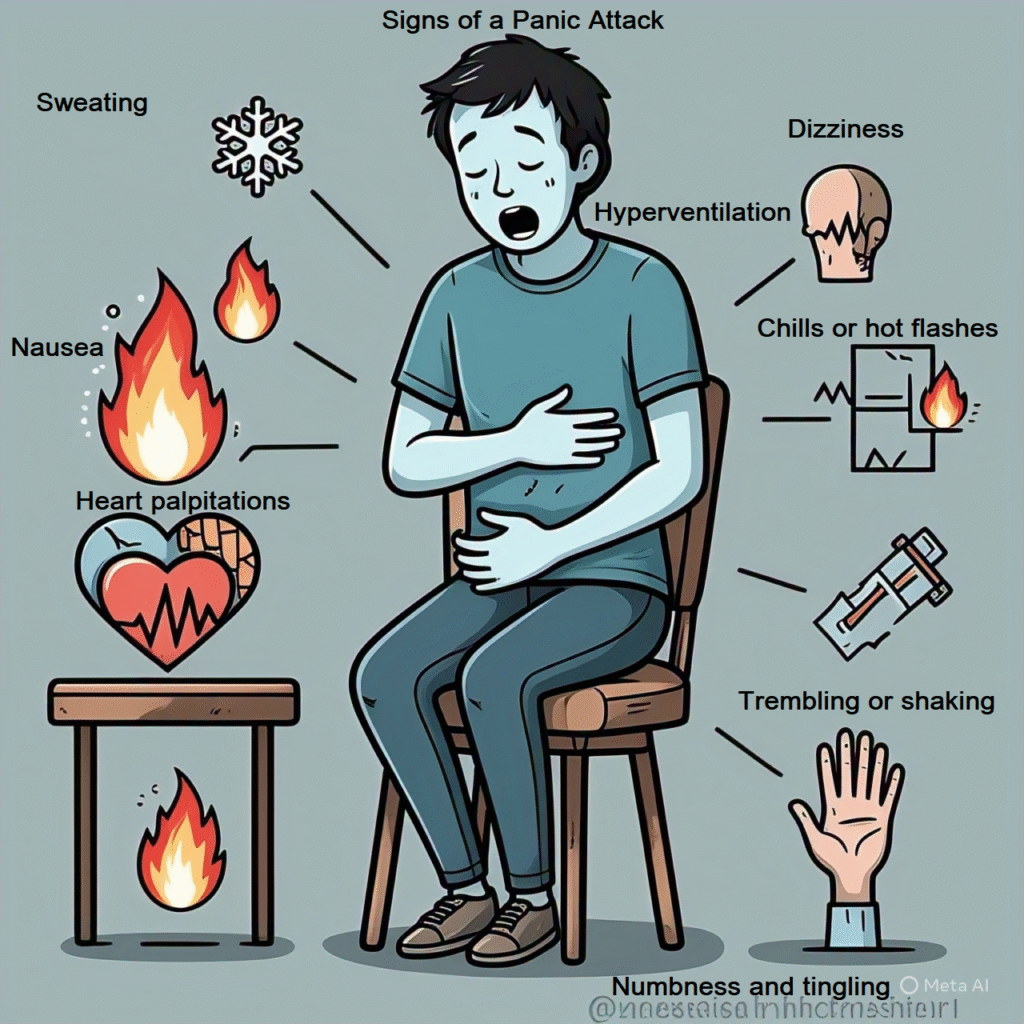
🩺 When to Seek Help for Anxiety Attacks
Anxiety attacks are common, but they shouldn’t be ignored — especially if they’re affecting your daily life. You should consider seeking help if:
- Attacks are frequent or worsening
- You avoid places or people due to fear of having an attack
- You experience chest pain or shortness of breath regularly
- You feel constantly on edge or unable to relax
Thankfully, help is available — from therapy to medication to lifestyle changes.
🛠️ How to Stop an Anxiety Attack (Immediate Relief)
Grounding Techniques (5-4-3-2-1 Method)
Focus on things around you — name five things you can see, four you can touch..
- 5 things you see (e.g., a lamp, your hands)
- 4 things you feel (e.g., your feet on the floor)
- 3 things you hear (e.g., traffic outside)
- 2 things you smell (e.g., coffee, perfume)
- 1 thing you taste (e.g., mint gum)
This technique, backed by dialectical behaviour therapy (DBT) research, helps shift focus away from panic (Linehan, 2015).
Deep Breathing (4-7-8 Method)
Breathing exercises : Try the 4-7-8 method
- Inhale for 4 seconds
- Hold for 7 seconds
- Exhale for 8 seconds
Slowing your breath signals safety to your nervous system (Jerath et al., 2015).
Mindfulness meditation :
Helps bring attention back to the present moment.
Hofmann SG, et al. reported the effect of mindfulness-based therapy on anxiety and depression.” Journal of Consulting and Clinical Psychology , 2010.
Physical movement :
Walking or stretching can release built-up tension
Long-Term Treatment & Prevention
Therapy Options
- CBT: Challenges irrational thoughts
- Exposure therapy: Gradually faces fears (Foa et al., 2017)
Lifestyle Changes
- Exercise: Boosts endorphins (30 mins/day reduces anxiety by 26% – Schuch et al., 2019)
- Sleep hygiene: Poor sleep worsens anxiety (Walker, 2018)
- Lifestyle changes such as reducing caffeine, and eating balanced meals can also make a big difference.
❓ FAQs About Anxiety Attacks
Can anxiety attacks cause chest pain?
Yes. During an anxiety attack, your muscles tighten and your heart races, which can lead to chest discomfort. However, always consult a doctor to rule out serious conditions.
Are anxiety attacks dangerous?
While they feel alarming, anxiety attacks aren’t physically harmful. They can mimic heart issues, so it’s important to get checked out if this is new or severe.
Can children have anxiety attacks?
Absolutely. Children can experience anxiety attacks too, though they may describe them differently — e.g., “My tummy hurts” or “I feel weird.”
Do anxiety attacks go away on their own?
They usually pass within minutes to hours, but recurring attacks often require professional support to prevent chronic anxiety.
What helps fast during an anxiety attack?
Try grounding techniques, deep breathing, or closing your eyes and focusing on one calming thought.
Why do anxiety attacks happen at night?
Nighttime attacks may be linked to cortisol dips or unresolved stress (Pires et al., 2016).
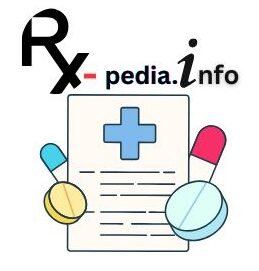
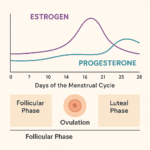




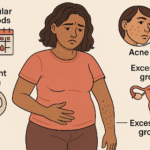




1 thought on “Anxiety Attacks: A Comprehensive Guide to Signs, Symptoms & Differences”